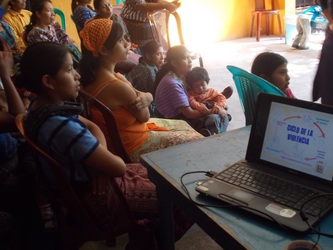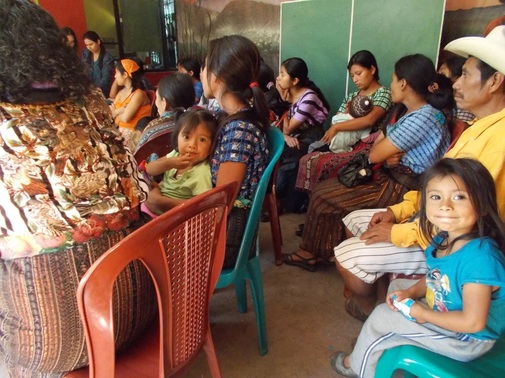
Kaylin Bolt, the project manager, says that the seminar was especially important for the community because “these are very real and common experiences that many women have but are not talking about because of the sensitivity and taboo nature of the topic.”
In 2013 the Center for Strategic and International Studies announced that Guatemala had the third highest murder rate of women and is encountering “an epidemic of gender based violence and femicide that particularly affects young girls and older women.” Furthermore, the World Bank reports that around the world, women aged 15-44 are more at risk for rape and domestic violence than cancer, car accidents, war and malaria.
At the event three women came forward and shared their own testimonies of domestic abuse, but only one out of the three had reported her experience to local authorities. Many victims of domestic violence in Guatemala never tell anyone about their abuse due to shame or fear. In other cases, women do not know where to turn or they do not recognize the violence as abnormal. This is especially true in rural and indigenous communities, where women are often illiterate and economically dependent on their spouses, which makes the decision to report violence or leave a partner even more difficult and intimidating.
In an attempt to combat this fear and lack of information, Pueblo a Pueblo invited 3rd year law students from the local Justice Administration Center to educate women about resources for support, guidance, and legal assistance. With the seminar’s emphasis on women’s rights and resources for victims, the women of Pueblo a Pueblo’s Maternal Child Health project left the training better informed and empowered to demand justice for, and prevent future acts of, violence against women and girls.


 RSS Feed
RSS Feed